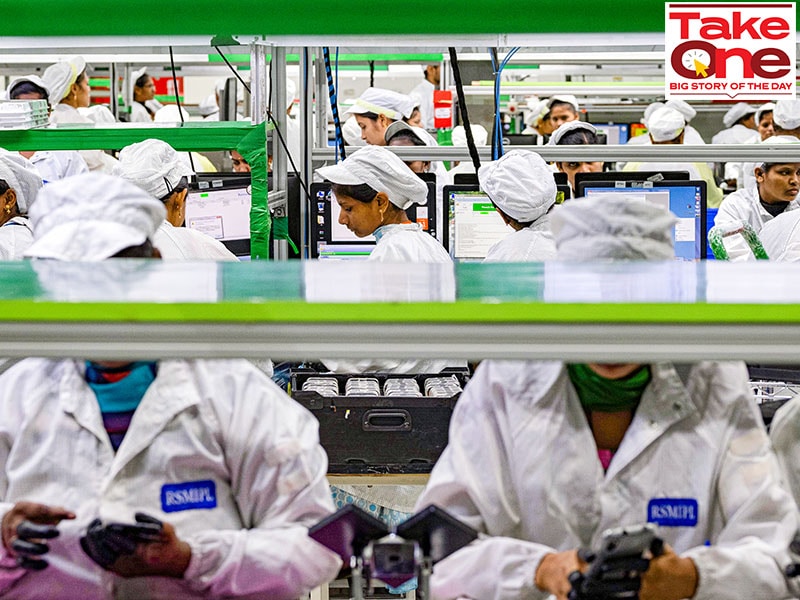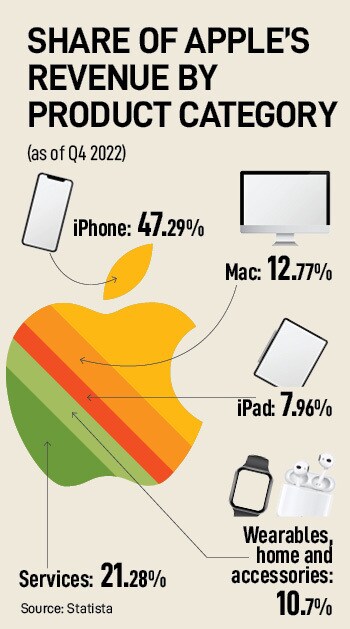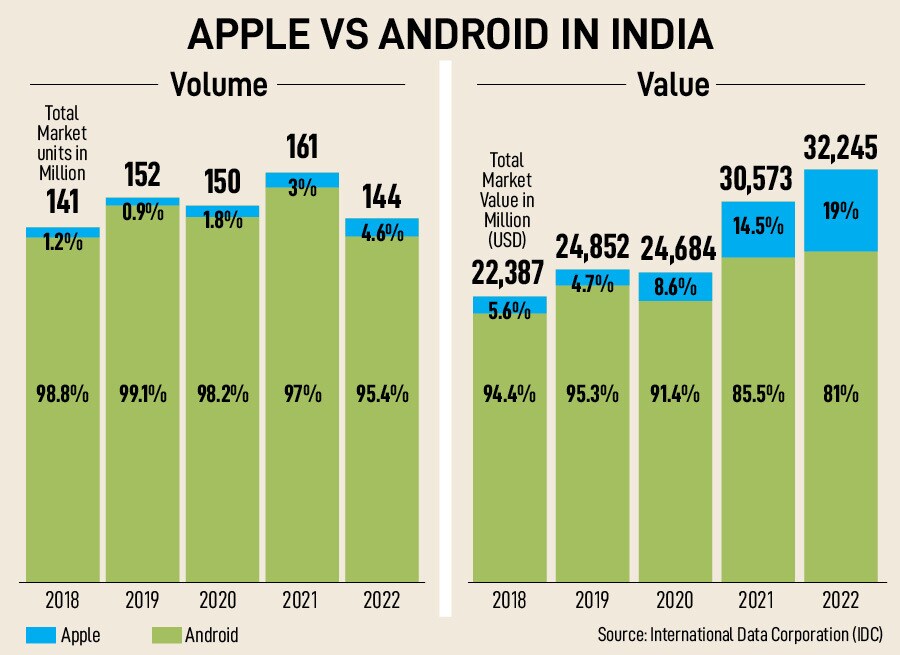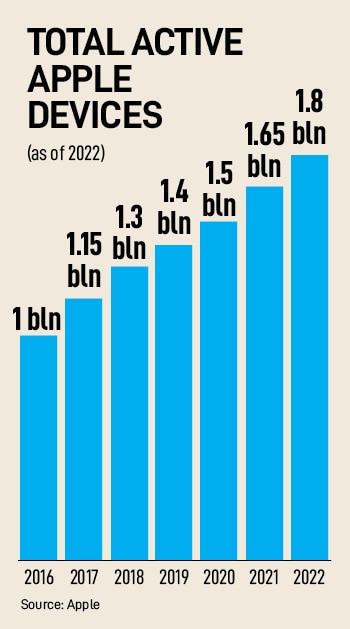
Made in China to Make in India: Apple's new big bet
Apple has been eyeing expanding in India since 2016. Now, with three contract manufacturers, two retail stores and several other manufacturing plants in the wings, Apple is all set to make the most of India's lower costs of production and rising demand
 Through its three contract manufacturers, Apple currently produces and exports the iPhone 12, 13, 14 and 14+ models from India; Image: Karen Dias/Bloomberg via Getty Images
Through its three contract manufacturers, Apple currently produces and exports the iPhone 12, 13, 14 and 14+ models from India; Image: Karen Dias/Bloomberg via Getty Images
Between 1980 and 1985, a series of events took place at one of the biggest companies in Silicon Valley that had started out in 1976 building computers in a garage. These events would eventually result in China becoming the main driver for this company's success. It would also go on to make Apple Computers dependent on that country.
It started with Apple going public, and then setting up manufacturing facilities in states like Texas, Colorado and California; over the next few years many of these factories were shut down as part of a larger restructuring plan, employees were laid off, and Steve Jobs, the late co-founder and CEO, was fired. By 2004, the last US manufacturing line in Elk Grove, a city in California’s Sacramento city, was shut down. Most of the manufacturing by then had moved to China.
Cut to 2011. In February, former US President Barack Obama joined Silicon Valley’s top luminaries for dinner in California. As The New York Times reported, Obama asked Jobs: What would it take to make iPhones in the United States? Why can’t that work come home? Jobs responded, “Those jobs aren’t coming back.” The same year in October, Jobs passed away after battling cancer.




 Through its three contract manufacturers, Apple currently produces and exports the iPhone 12, 13, 14 and 14+ models from India. Apple’s contract manufacturers—Hon Hai Technology Group (Foxconn) and Pegatron, both located out of Tamil Nadu, and Wistron, which is in Karnataka—are all participants in the government’s smartphone production linked incentive (PLI) scheme launched in April 2021.
Through its three contract manufacturers, Apple currently produces and exports the iPhone 12, 13, 14 and 14+ models from India. Apple’s contract manufacturers—Hon Hai Technology Group (Foxconn) and Pegatron, both located out of Tamil Nadu, and Wistron, which is in Karnataka—are all participants in the government’s smartphone production linked incentive (PLI) scheme launched in April 2021. 





